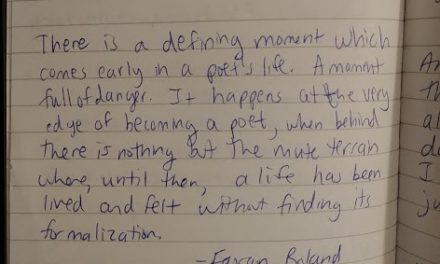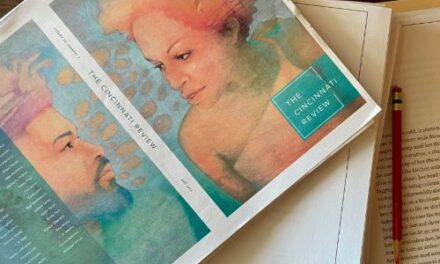 It’s Celebrate Our Readers day. Not the readers of our journal (though we are ever so grateful for you), but the diligent and conscientious behind-the-scenes readers of the six thousand plus (and rising!) submissions we receive each year. These intelligent and dedicated humans, who are just as busy as you are and receive no payment for their pains, spend hours every week rendering thoughtful assessments of the random poems and stories, by writers both new and seasoned, that continuously fill their inboxes. Below are a few examples of our readers’ reactions to the work you send our way.
It’s Celebrate Our Readers day. Not the readers of our journal (though we are ever so grateful for you), but the diligent and conscientious behind-the-scenes readers of the six thousand plus (and rising!) submissions we receive each year. These intelligent and dedicated humans, who are just as busy as you are and receive no payment for their pains, spend hours every week rendering thoughtful assessments of the random poems and stories, by writers both new and seasoned, that continuously fill their inboxes. Below are a few examples of our readers’ reactions to the work you send our way.
Good poems, but not very inventive or new—except for the last one, which I think does something sort of fresh by reversing the typical depictions of boys/girls and children’s perceptions of gender—but then undercuts itself in the final line. Would like to hear another poet’s thoughts.
*
I feel like this one is on the cusp? The reveal feels kind of like a trick, and there are many disturbing unanswered questions, specifically about character motivation, but it’s beautifully written and interesting and haunting.
*
Well written estranged father-and-son story. Not horribly interesting, though.
*
From this batch, I recommend “O——” for further consideration. The poem deviates and subverts the ekphrastic tradition throughout. At the beginning, it does this via nuance, but by the end the poem has taken the narrative (and the reader!) to a whole other immediate place. It is this immediacy at the end that is most compelling to me, especially in an ekphrastic poem, most of which tend to dwell in the past tense of description.
*
This is not really a literary poem, though it does occasionally exhibit startling word choices. A bit like Jim Morrison, if Jim Morrison were a tanned teen girl in a bathing suit crushing on her boyfriend.
*
Wow, this story hooked me. The author’s use of indirection is superb, and I love the how insistent and forceful the protagonist is when it comes to protecting/maintaining the dignity of symbols (snakes and fish). The dialogue is convincing, the pacing well controlled. Guess what I don’t like? The ending. I sense the writer couldn’t find a way out of the story so concocted a deeply symbolic and ambiguous gesture.
*
Well written, but I find the frame this story uses much less original and interesting than its focus. I don’t know the narrator enough to really feel affected by his lost son. The whole conceit feels contrived in order to give weight to the frame.
*
There are nice observations and images concerning things like lawn mowing and drug stores, but the poet doesn’t do much new or interesting with these images. Adjectives over insight.
*
Story is over 10K words, contains “Track Changes” corrections, and features laborious stretches of description (mountain wilderness and dogs). The piece exhibits no sense of pacing, though there are fleeting moments of mystery / tension.
*
I pass this batch on because I enjoy many of the images and a lot of the wordplay in the first three poems. I’m on the fence overall, but when I’m on the fence with poetry, I figure it’s best to let another set of eyes see it.
*
These are worth further consideration. “S——” introduces a conceit and doesn’t over-indulge in it, rather it stays focused on the emotional resonance of the ending. “O——” made me think of Pablo Neruda’s odes to everyday objects, but with a modern sensibility.
 It’s Celebrate Our Readers day. Not the readers of our journal (though we are ever so grateful for you), but the diligent and conscientious behind-the-scenes readers of the six thousand plus (and rising!) submissions we receive each year. These intelligent and dedicated humans, who are just as busy as you are and receive no payment for their pains, spend hours every week rendering thoughtful assessments of the random poems and stories, by writers both new and seasoned, that continuously fill their inboxes. Below are a few examples of our readers’ reactions to the work you send our way.
It’s Celebrate Our Readers day. Not the readers of our journal (though we are ever so grateful for you), but the diligent and conscientious behind-the-scenes readers of the six thousand plus (and rising!) submissions we receive each year. These intelligent and dedicated humans, who are just as busy as you are and receive no payment for their pains, spend hours every week rendering thoughtful assessments of the random poems and stories, by writers both new and seasoned, that continuously fill their inboxes. Below are a few examples of our readers’ reactions to the work you send our way.









